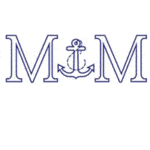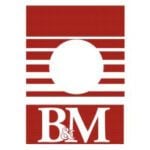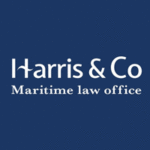-
What system of port state control applies in your jurisdiction? What are their powers?
In Mozambique, port state control is exercised by the National Sea Institute (Instituto Nacional do Mar, IP, or INAMAR), a public entity that has competence over all maritime matters in the country, as provided for in Decree No 88/2021 of 28 October 2021 and Resolution No 15/2022 of 19 September 2022, which approved INAMAR’s Organic Statute.
In general, INAMAR is responsible for the following:
- the exercise of maritime authority in the areas of maritime, lake, fluvial jurisdiction and coastal zones, as well as in the domain of maritime administration, safety and protection;
- the planning of maritime space and the public maritime domain of the coastal zone;
- the supervision of activities in maritime, fluvial and lake areas, and public maritime domain of the coastal zone, as well as compliance with standards regarding the protection of marine and coastal ecosystems and the conditions of conservation and exploitation of marine conservation areas;
- the development and implementation of measures ensuring the sustainable exploitation, conservation and preservation of aquatic ecosystems; and
- the conducting and/or co-ordinating of search and rescue activities, as well as saving assets, in maritime, fluvial and lake areas, with the involvement of other relevant entities.
Regarding marine casualties such as grounding, pollution or wreck removal, INAMAR is responsible, among others, for the following:
- to monitor and supervise vessels and fixed and mobile platforms, in order to prevent and detect any pollution activities in the marine environment and inland waters, in co-ordination with other relevant entities;
- to co-ordinate maritime search and rescue activities and the saving of property in maritime, river and lake areas;
- to participate in the investigation of marine casualties and incidents as well as maritime infringement procedures;
- to inspect and monitor the handling of dangerous cargo, in co-ordination with other competent entities;
- to adopt measures for the prevention, control and combating of pollution of the marine environment from ships or other floating media at sea, in co-ordination with other relevant entities;
- to ensure compliance with international and regional standards and best practices and procedures for preventing, reducing, controlling and combating pollution of the marine environment;
- to prevent and combat pollution of the sea, rivers, lakes and their ecosystems from all sources that may cause damage to the aquatic and coastal environment, in co-ordination with other relevant entities;
- to prevent, control and act on actions that result in the intentional or unintentional discharge of waste into the sea, inland waters and coastal areas; and
- to license, among others, the exercise of assistance and maritime salvage activities, and the recovery of objects or cargo on the seabed and inland waters.
-
Are there any applicable international conventions covering wreck removal or pollution? If not what laws apply?
The following international conventions and domestic laws are enforceable in Mozambique.
Pollution
- The 1973 International Convention for the Prevention of Pollution from Ships and Annexes I/II, III, IV and V.
- The 1982 United Nations Convention on the Law of the Sea.
- The 1985 Convention for the Protection, Management and Development of the Marine and Coastal Environment of the Eastern African Region.
- The 1990 International Convention on Oil Pollution Preparedness, Response and Co-operation.
- The 1992 Protocol to amend the International Convention on Civil Liability for Oil Pollution Damage of 1969.
- The Protocol of 1992 to amend the International Convention on the Establishment of an International Fund for Compensation for Oil Pollution Damage.
In terms of domestic laws, the Environmental Law, approved by Law No 20/97 of 5 December 1997 (as amended by Law No 16/2014 of 20 June); the Regulation for Prevention of Pollution and Marine and Coastal Environment Protection, approved by Decree No 45/2006 of 30 November 2006 (as amended by Decree No 97/2020 of 4 October); and the Law of the Sea, approved by Law No 20/2019 of 8 November 2019, must be taken into account.
Wreck Removals
Wreck removals are governed by domestic law, namely the Environmental Law and ancillary statutes and regulations, as Mozambique is not a signatory of the Nairobi International Convention on the Removal of Wrecks of 2007.
-
What is the limit on sulphur content of fuel oil used in your territorial waters? Is there a MARPOL Emission Control Area in force?
For the time being, Mozambique has not approved specific domestic legislation dealing with the sulphur content of fuel oil used on board ships – with all it implies in terms of enforcement of the international standards on sulphur content limitations.
However, there are now some players in the market that have started to provide fuel oil in compliance with the IMO 2020 regulation.
-
Are there any applicable international conventions covering collision and salvage? If not what laws apply?
The following international conventions and domestic laws are enforceable in Mozambique.
Collision
- The 1910 International Convention for the Unification of Certain Rules of Law with respect to Collisions between Vessels.
- The 1952 International Convention for the Unification of Certain Rules concerning Civil Jurisdiction in Matters of Collision.
- The 1952 International Convention for the Unification of Certain Rules relating to Penal Jurisdiction in Matters of Collision or Other Incidents of Navigation.
- The 1972 International Regulations for Preventing Collisions at Sea, as amended in 1981.
Collision events are also governed by domestic law, notably Article 664 et seq of the 1888 Commercial Code (statute which was mostly superseded by the 2005 and 2022 Commercial Codes, excluding its Book III, on maritime trade, which remain in full force and effect today).
Salvage
Salvage is governed by the 1910 Convention for the Unification of Certain Rules of Law respecting Assistance and Salvage at Sea and, on a domestic level, by the provisions of the Salvage and Assistance Regime, approved by Legislative Diploma No 96/72 of 12 October 1972, and the 1888 Commercial Code (Article 676 et seq).
-
Is your country party to the 1976 Convention on Limitation of Liability for Maritime Claims? If not, is there equivalent domestic legislation that applies? Who can rely on such limitation of liability provisions?
The 1976 Convention on Limitation of Liability for Maritime Claims has not been ratified by Mozambique.
However, the 1924 International Convention for the Unification of Certain Rules relating to the Limitation of the Liability of Owners of Sea-Going Vessels and the 1957 International Convention relating to the Limitation of the Liability of Owners of Sea-Going Ships (the “1957 Convention”), apply in Mozambique.
Under domestic law, it is worth noting the provisions of the Commercial Code in this regard. For instance, where collision was caused due to fault or wilful misconduct of the crew, damages will be computed and shared between the owners pro rata to the severity of each crew’s fault. Furthermore, if it is not possible to determine which vessel caused the accident, all intervening vessels shall be jointly liable for damages and losses arising therefrom.
-
If cargo arrives delayed, lost or damaged, what can the receiver do to secure their claim? Is your country party to the 1952 Arrest Convention? If your country has ratified the 1999 Convention, will that be applied, or does that depend upon the 1999 Convention coming into force? If your country does not apply any Convention, (and/or if your country allows ships to be detained other than by formal arrest) what rules apply to permit the detention of a ship, and what limits are there on the right to arrest or detain (for example, must there be a “maritime claim”, and, if so, how is that defined)? Is it possible to arrest in order to obtain security for a claim to be pursued in another jurisdiction or in arbitration?
The 1952 Convention for the Unification of Certain Rules relating to the Arrest of Seagoing Vessels (“1952 Convention” or “Brussels Convention”) is applicable in Mozambique. Under this Convention, any person that alleges holding a maritime claim is entitled to seek the arrest of a ship. A “maritime claim” is deemed to be a claim that arises out of one or more of the situations foreseen in Article 1.1 of the Convention.
For the purposes of obtaining security for an unlisted maritime claim [e.g., arrest for a ship sale claim, unpaid insurance premiums, protection and indemnity (“P&I”) dues, amongst others] or to seek the arrest of a vessel sailing under the flag of a non-contracting state, i.e. situations that do not fall within the scope of the 1952 Convention, the claimant must make use of the provisions of the Civil Procedure Code. In this case, and besides the jurisdiction issue that needs to be properly assessed, in addition to providing evidence on the likelihood of its right/credit (fomus bonus iuris), the claimant shall also produce evidence that at the time that the final judgment is handed down in the main proceedings, there is a risk that the debtor/arrestor may have already removed or concealed the ship (security for the claim) or that the ship may depreciate in such a way that the ship is no longer available or has substantially decreased in value (periculum in mora).
Before ordering the arrest, the arrestee is granted the opportunity to oppose/challenge the arrest application/order within 8 days. Please note, however, that if the arrest application is properly filed and duly documented, the court may order the detention of the vessel before summoning the arrestee or granting the arrestee the possibility to oppose the arrest application. With the arrest in place, the claimant is required to file the initial claim for the main proceedings, of which the injunction will form an integral part, within 30 days as of the arrest order.
During the proceedings, the parties are free to settle by agreement and withdraw the claim. If the main claim should be filed with a foreign court, then the judge dealing with the arrest application must set out the period within which the claimant must commence proceedings on the merits in the appropriate jurisdiction. The defendant is entitled to post a security before the relevant court in the amount of the claim brought by the claimant, and seek the release of the vessel pending foreclosure and auction.
Outside the scope of the 1952 Convention, Mozambican courts will also accept the arrest in respect of claims subject to foreign arbitration or jurisdiction clauses when the vessel is within their territorial jurisdiction.
Mozambique is not a party to the 1999 International Convention on Arrest of Ships.
-
For an arrest, are there any special or notable procedural requirements, such as the provision of a PDF or original power of attorney to authorise you to act?
The original power of attorney shall be provided to the court and attached to the arrest application, unless it is not available. In the latter case, it is possible to request leave from the Tribunal to submit the original power of attorney at a later stage (a scanned (colour) copy of the original power of attorney being submitted with the application whenever available).
Besides, where issued abroad, powers of attorney are only accepted and enforceable if previously notarised, legalised, translated into Portuguese and, finally, consularised before Mozambique’s embassy or consulate with jurisdiction over the country of their issuance.
-
What maritime liens / maritime privileges are recognised in your jurisdiction? Is recognition a matter for the law of the forum, the law of the place where the obligation was incurred, the law of the flag of the vessel, or another system of law?
Maritime liens are recognised in Article 578 of the 1888 Commercial Code, which specifies the following categories of claims:
- court costs incurred in the common interest of the creditors;
- remuneration for salvage;
- pilotage and towage expenses;
- tonnage, lights, anchorage, public health and other harbour dues;
- expenses incurred in connection with a vessel’s maintenance and storage of her appurtenances;
- master and crew wages;
- costs incurred in connection with the repair of the vessel, her appurtenances and equipment;
- reimbursement of the price of the cargo that the master was forced to sell;
- insurance premiums;
- any unpaid portion of the price due in connection with the purchase of a vessel;
- costs incurred in connection with the repair of the vessel, her appurtenances and equipment accruing during the last three years;
- unpaid amounts arising from ship-building contracts;
- outstanding insurance premiums over the vessel, if insurance coverage was taken in total, or over the covered part of her appurtenances, not mentioned in (11); and
- sums due to shippers in respect of loss or damage to cargo.
Liens mentioned in (1) to (9) are understood to refer to those incurred during, and as a cause of, the last voyage.
Recognition is typically a matter for the law of the forum.
-
Is it a requirement that the owner or demise charterer of the vessel be liable in personam? Or can a vessel be arrested in respect of debts incurred by, say, a charterer who has bought but not paid for bunkers or other necessaries?
It is not required that the owner is liable in personam for an arrest of a vessel to be accepted. Pursuant to Article 3(4) of the 1952 Convention, if the charterer (and not the registered owner) is liable in respect of a maritime claim relating to a vessel, in the context of a charter by demise of a vessel, the claimant may arrest such vessel or any other vessel in the ownership of the charterer by demise, even though no other vessel in the ownership of the registered owner shall be liable to arrest in respect of such maritime claim. The above-mentioned regime shall apply to any case in which a person other than the registered owner is liable in respect of a maritime claim relating to that vessel.
As regards the example provided, a bunker supplier may arrest a vessel based on a maritime claim, as set out by Article 1(1)(k) of the 1952 Convention.
As set out by Article 3(4) of the 1952 Convention, a bunker supplier may arrest a vessel in connection with a claim for the price of bunkers supplied under a contract with the charterer, rather than with the owner, of that vessel, despite the added difficulty in enforcing the security where the charterer is not the owner. To the best of the authors’ knowledge, there is no case law in Mozambique regarding the interpretation of this article of the 1952 Convention.
-
Are sister ship or associated ship arrests possible?
Articles 2 and 3 of the 1952 Convention establish that the vessel that originated the maritime claim, as well as any other associated vessel or sister-ship owned by the same person(s), may be arrested by the claimant. However, in disputes regarding the title to, or ownership of, the ship, and disputes between co-owners as to the ownership, possession, employment, earnings, mortgage or hypothecation of a specific ship, associated vessels cannot be arrested.
Outside the 1952 Convention, sister-ships may only be arrested when the owner is personally liable for the debt.
-
Does the arresting party need to put up counter-security as the price of an arrest? In what circumstances will the arrestor be liable for damages if the arrest is set aside?
Despite the judge being free to decide otherwise, no security is usually required. Whenever the court asks the claimant to provide a security deposit, it will generally correspond to the amount of the claim. The security may be deposited in any form considered acceptable by the court, including cash deposits or bank guarantees.
In the event of wrongful arrest of a vessel or where the arrest is lifted for reasons imputable to the applicant, the latter is liable for the damages caused to the arrestee, provided that the applicant has not acted with normal prudence or due care, as set out by Article 621 of the Civil Code.
-
How can an owner secure the release of the vessel? For example, is a Club LOU acceptable security for the claim?
Pursuant to Article 5 of the 1952 Convention, the vessel shall be released upon sufficient bail or other security being furnished, save in arrests in respect of any of the maritime claims regarding disputes as to the title or ownership of the ship, or in disputes between co-owners of the ship as to the possession, employment or earnings of any vessel. In such cases, the court may permit the person in possession of the vessel to continue trading it, upon such person furnishing sufficient bail or other security.
Outside the 1952 Convention, the vessel will also be released if security is provided in the form and amount deemed sufficient by the court.
As mentioned above, the security may be deposited in any form considered acceptable by the court, including cash deposits or bank guarantees.
Both under and outside the 1952 Convention, the vessel shall also be released:
- upon payment of the debt;
- in the event the main claim is not commenced within 30 days – or a different time period established by the court when the claim is subject to a jurisdiction of a foreign court – from the arrest being ordered or has had no developments for a period of more than 30 days for reasons imputable to the creditor;
- the main claim is definitively dismissed;
- if the main claim is upheld but the debt remains outstanding and the creditor does not initiate the enforcement proceedings within six months from the claim being definitively upheld or they have no development for a period of more than 30 days for reasons imputable to the creditor; or
- if the credit ceases to exist.
Typically, courts are reluctant to accept club’s letter of indemnity as security.
-
Describe the procedure for the judicial sale of arrested ships. What is the priority ranking of claims?
Procedure
Usually, the judicial sale of arrested ships requires that a new enforcement proceeding is initiated by the creditor before the competent court. Once the application is lodged, the court will notify the debtor to settle the claim or offer its opposition, as well as any other interested parties, such as secured creditors.
If the sale is ordered, the judge will decide on how it will take place, and then appoint an auctioneer. The vessel is sold “as is and where is” and free from any charges or encumbrances. Notwithstanding, the debtor may still recover the vessel until completion of the judicial sale, provided it deposits the amount being claimed plus court fees and expenses.
Ship Maintenance
Once the vessel is arrested and until sold in the enforcement proceedings, an agent appointed by the court will be liable for supervising its maintenance, whenever the master and their crew are absent or urgent decisions are to be taken.
Claim Priority
The order of priority of claims is established under Article 578 of the 1888 Commercial Code, as mentioned above.
-
Who is liable under a bill of lading? How is “the carrier” identified? Or is that not a relevant question?
As this issue is not specifically addressed in the law, the statements of the bill of lading shall be conclusive. From the relevant provisions of Book III of the former Commercial Code, enacted in 1888 and the only part of the statute still in force (hereinafter “1888 Commercial Code”), a bill of lading (“Conhecimento de Embarque”) has three different purposes, as follows: (i) it demonstrates the existence of a contract of carriage and the conditions thereof; (ii) serve as a receipt of the delivery of the goods to the carrier (“transportador”); and (iii) it constitutes a negotiable instrument, i.e., its lawful holder is entitled to the perfomance of the agreement embodied in the bill of lading. Accordingly, a bill of lading must include inter alia (a) the name and address of the owner (“proprietário”), (b) shipper (“carregador”), (c) master (“capitão”) or charterer (“fretador”), (d) consignee (“destinatário”) if determinable, (e) description of the cargo, including the nature, quality and quantity, and (f) freight/ hire (“frete”).
The carrier is usually to be identified on the face of the bill of lading, being usually considered to be the person who signed the bill of lading or the person in whose name or on whose behalf the bill of lading was signed. Whoever issues a bill of lading without being the carrier, is liable for the damages caused to the shipper and other interested parties. If the carrier is not identified on the face of the bill of lading, and in the absence of an express provision in the law in this regard, we believe that there are grounds to argue that the vessel will be deemed liable in rem before cargo interests under the same terms as the carrier.
-
Is the proper law of the bill of lading relevant? If so, how is it determined?
Pursuant to Articles 41 et seq of the Civil Code, contracts are governed by the law chosen by the parties, provided that such election has a connection (nexus) with a relevant element of the contract or is otherwise supported by an interest in good faith (a bona fides interest) of the parties. However, under Article 22 of the Civil Code, a foreign law elected in accordance with those rules will not be acceptable if it involves a violation of fundamental principles of Mozambican public policy.
Notwithstanding, under Article 46 of the Civil Code, the creation, assignment and cancellation of possession, ownership and other related rights, including guarantees, over movable or immovable property, are governed by the relevant lex rei sitae. When goods are in transit, lex rex sitae shall be the place of final destination.
The above notwithstanding, one would say that, in general, Mozambican courts are reluctant to interfere with commercial contracts unless there are very strong reasons against the relevant provision.
-
Are jurisdiction clauses recognised and enforced?
Mozambican law allows the parties to a contract to agree on a foreign jurisdiction and/or arbitral tribunal to resolve any conflicts arising under the relevant agreement unless those conflicts are covered by provisions which, for any reason, are subject to mandatory Mozambican law or jurisdiction.
Arbitration and jurisdiction clauses set out in a document which is incorporated into the main contact should be recognized as valid and effective, provided they are in written form and found to be documented, either in a written instrument signed by the parties or in correspondence exchanged between them. Please refer to question 17 below on the arbitration clause.
Taking the abovementioned into consideration, a jurisdiction clause set out in a charterparty will be generally recognized under Mozambican law if it has been duly incorporated in the bill of lading, even if only by way of reference.
Any proceedings commenced before a Mozambican Court disregarding a foreign jurisdiction or arbitration clause may be challenged. It is up to the defendant to seek for the formal dismissal of the proceedings based on breach of said clause and hence lack of jurisdiction of Mozambican Courts. The Court will then assess if it has jurisdiction (and, that being the case, will hear the parties on the substantive proceedings) or, alternatively, rule it has not and dismiss the claim. In this latter scenario, it will fall to the parties to begin new proceedings before the relevant competent Court.
-
What is the attitude of your courts to the incorporation of a charterparty, specifically: is an arbitration clause in the charter given effect in the bill of lading context?
In this regard, and in which concerns to arbitration clauses, it is important to note that in order to be valid and effective this type of clauses must be produced in writing and inserted into a document signed by the parties or contained in a form of communication made on a durable medium. With the above in mind, the courts would most likely acknowledge arbitration clauses incorporated in a charterparty as long as reference to same has been (i) made in writing in the relevant bill of lading and (ii) acknowledged and agreed by the parties thereto. Conversely, should a bill of lading contain generic references to the applicability of the terms of a charterparty, not specifically addressing the application of the arbitration clause referred therein, one can argue that the arbitration clause was not duly incorporated in the bill of lading and, therefore, is not effective.
-
Is your country party to any of the international conventions concerning bills of lading (the Hague Rules, Hamburg Rules etc)? If so, which one, and how has it been adopted – by ratification, accession, or in some other manner? If not, how are such issues covered in your legal system?
Although not ratified by Mozambique after its independence from Portugal, it is broadly accepted that the 1924 International Convention for the Unification of Certain Rules of Law relating to Bills of Lading (“Hague Rules”) is applicable in Mozambique.
Mozambique is not a signatory to most of the international conventions governing shipping and maritime issues. However, many of such conventions were initially ratified by Portugal, when Mozambique was still a Portuguese overseas territory. In addition to their publication in the Portuguese Official Gazette, international instruments would be independently gazetted, with express provision for their applicability to Mozambique and other Portuguese overseas territories.
Under the 1978 Vienna Convention on Succession of Treaties, after Mozambique gained its independence it should have confirmed its willingness to be bound by any treaties and/or conventions to which Portugal was a party.
Notwithstanding this lack of confirmation, Article 71 of the Mozambican Constitution, approved immediately upon its independence provided for the survival of any (Portuguese) laws and regulations in force at the time of the independence until repealed or amended, and as long as they do not conflict with the word and spirit of the constitutional provisions. This provision applies to all treaties, conventions and alliances to which Portugal adhered and Mozambique was bound prior to independence.
Both the SDR Protocol and the Rotterdam Rules were not ratified by Mozambique and, therefore, are not applicable by statute. Still, it is worth mentioning that the Decree Law 3/2022, of 25 May, which enacted the new legal regime for commercial contracts, adopts, in its Chapter VI (Shipping Contracts) so of its provisions
-
Is your country party to the 1958 New York Convention on the Recognition and Enforcement of Foreign Arbitral Awards? If not, what rules apply? What are the available grounds to resist enforcement?
The 1958 New York Convention on the Recognition and Enforcement of Foreign Arbitral Awards is applicable in Mozambique.
With regard to domestic law, Articles 1094 to 1096 of the Civil Procedure Code are applicable to the review and confirmation of foreign judgments. As a rule, any judgment awarded by a foreign court shall be subject to review and confirmation by the Supreme Court in order to be valid and enforceable in Mozambique.
The following set of requirements must be met for the review and confirmation of a foreign judgment, as set out by Article 1096 of the Civil Procedure Code:
- there are no doubts as to the authenticity of the judgment and the intelligibility of its decision;
- it must have become a final decision (not subject to appeal) according to the law of the country where the judgment was issued;
- it comes from a foreign court whose jurisdiction has not been fraudulently acquired and does not concern a matter of exclusive jurisdiction of the Mozambican courts;
- there is no case pending or decided before a Mozambican court, unless the foreign court has prevented jurisdiction;
- the defendant has been duly summoned to the proceedings, in accordance with the law of the country of the court of origin, and the principles of adversarial proceedings and equality of the parties have been observed; and
- it does not contain a decision whose recognition would lead to a result manifestly incompatible with the principles of international public policy or international private law of Mozambique.
Under domestic law, the grounds for refusing the enforcement of an arbitral award are the same as those set forth for the enforcement of court decisions, which are wider than those of the New York Convention.
-
Please summarise the relevant time limits for commencing suit in your jurisdiction (e.g. claims in contract or in tort, personal injury and other passenger claims, cargo claims, salvage and collision claims, product liability claims).
According to the relevant Civil Code provisions, the general time bar for filing contractual claims is 20 years, whilst the time bar for liability in tort claims is three years. Statutes of limitation cannot be extended, but they can be suspended (Articles 318 to 322 of the Civil Code) or interrupted (Articles 323 to 327) under specific circumstances (eg, execution of an arbitration agreement, recognition of the debt).
Time bar is suspended when parties enter into negotiations over the claim and/or when legal proceedings are initiated.
-
Does your system of law recognize force majeure, or grant relief from undue hardship?
If the parties have not included force majeure or hardship clauses in their contracts, it is particularly important to take into consideration the general Mozambican legislation, namely the provisions of the Civil Code regarding abnormal changes in circumstances (Articles 437 and 438) or impossibility of performance of contracts (Articles 790 to 793).
Abnormal Changes in Circumstances
Article 437 of the Civil Code applies whenever the circumstances on which the parties based their decision to enter into an agreement have suffered an abnormal change. As a result, the party that has been adversely affected by that change may terminate the agreement or ask for its modification based on equity, provided the party demonstrates that it could not have predicted the event and its consequences and that there is a causal link between the event and the failure to perform.
However, the above-mentioned regime includes very strict requirements in order to be invoked, since it is not enough to demonstrate the difficulty in performing the contract, but rather that the abnormal change is not covered by the risks inherent to the contract, and that requiring the performance of the agreement is contrary to the principles of good faith.
Impossibility of Performance
If the contract becomes impossible to perform, Articles 790 to 793 of the Civil Code are applicable, establishing different consequences based on whether the impossibility is total or partial and definitive or temporary.
Mozambique: Shipping
This country-specific Q&A provides an overview of Shipping laws and regulations applicable in Mozambique.
-
What system of port state control applies in your jurisdiction? What are their powers?
-
Are there any applicable international conventions covering wreck removal or pollution? If not what laws apply?
-
What is the limit on sulphur content of fuel oil used in your territorial waters? Is there a MARPOL Emission Control Area in force?
-
Are there any applicable international conventions covering collision and salvage? If not what laws apply?
-
Is your country party to the 1976 Convention on Limitation of Liability for Maritime Claims? If not, is there equivalent domestic legislation that applies? Who can rely on such limitation of liability provisions?
-
If cargo arrives delayed, lost or damaged, what can the receiver do to secure their claim? Is your country party to the 1952 Arrest Convention? If your country has ratified the 1999 Convention, will that be applied, or does that depend upon the 1999 Convention coming into force? If your country does not apply any Convention, (and/or if your country allows ships to be detained other than by formal arrest) what rules apply to permit the detention of a ship, and what limits are there on the right to arrest or detain (for example, must there be a “maritime claim”, and, if so, how is that defined)? Is it possible to arrest in order to obtain security for a claim to be pursued in another jurisdiction or in arbitration?
-
For an arrest, are there any special or notable procedural requirements, such as the provision of a PDF or original power of attorney to authorise you to act?
-
What maritime liens / maritime privileges are recognised in your jurisdiction? Is recognition a matter for the law of the forum, the law of the place where the obligation was incurred, the law of the flag of the vessel, or another system of law?
-
Is it a requirement that the owner or demise charterer of the vessel be liable in personam? Or can a vessel be arrested in respect of debts incurred by, say, a charterer who has bought but not paid for bunkers or other necessaries?
-
Are sister ship or associated ship arrests possible?
-
Does the arresting party need to put up counter-security as the price of an arrest? In what circumstances will the arrestor be liable for damages if the arrest is set aside?
-
How can an owner secure the release of the vessel? For example, is a Club LOU acceptable security for the claim?
-
Describe the procedure for the judicial sale of arrested ships. What is the priority ranking of claims?
-
Who is liable under a bill of lading? How is “the carrier” identified? Or is that not a relevant question?
-
Is the proper law of the bill of lading relevant? If so, how is it determined?
-
Are jurisdiction clauses recognised and enforced?
-
What is the attitude of your courts to the incorporation of a charterparty, specifically: is an arbitration clause in the charter given effect in the bill of lading context?
-
Is your country party to any of the international conventions concerning bills of lading (the Hague Rules, Hamburg Rules etc)? If so, which one, and how has it been adopted – by ratification, accession, or in some other manner? If not, how are such issues covered in your legal system?
-
Is your country party to the 1958 New York Convention on the Recognition and Enforcement of Foreign Arbitral Awards? If not, what rules apply? What are the available grounds to resist enforcement?
-
Please summarise the relevant time limits for commencing suit in your jurisdiction (e.g. claims in contract or in tort, personal injury and other passenger claims, cargo claims, salvage and collision claims, product liability claims).
-
Does your system of law recognize force majeure, or grant relief from undue hardship?




















